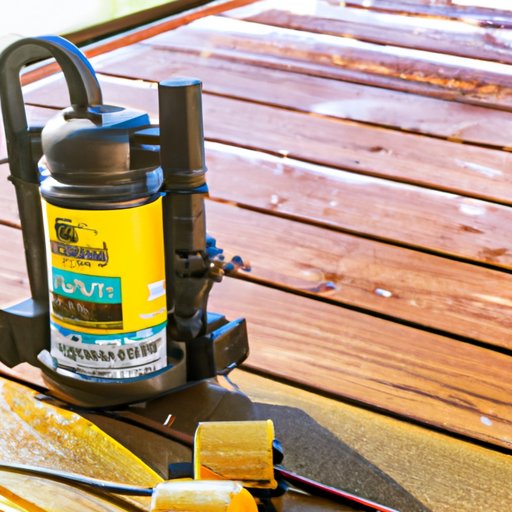Introduction
Power washing is a practical and cost-effective way to clean and maintain the exterior surfaces of residential and commercial buildings. It is an efficient method for removing dirt, mildew, and stubborn stains from driveways, patios, decks, walkways, and other surfaces. With the right equipment, power washing can also be used to remove paint, graffiti, and other unwanted materials.
Benefits of power washing include improved curb appeal, protection from water and moisture damage, and increased property value. Additionally, it can extend the life of wood and concrete surfaces, preventing the need for costly repairs or replacements.
Necessary Equipment and Supplies
The first step in starting a power washing business is to acquire the necessary equipment and supplies. The most important tool is a power washer, which uses a high-pressure stream of water to remove dirt, grime, and debris from surfaces. There are several types of power washers available, including electric, gas, and diesel models.
In addition to a power washer, you will need various tools and supplies for your business. These include a hose, nozzles, brushes, buckets, ladders, protective clothing, and detergents or additives. Depending on the type of jobs you take on, you may also need a generator, extension cords, and a pressure washer trailer.
Steps to Get Started
Once you have the necessary equipment and supplies, there are several steps you need to take to get your business up and running. The first step is to research local regulations concerning power washing. Most states and municipalities require that businesses obtain certain licenses and permits before they can operate legally.
The next step is to develop a business plan. This should include a detailed budget, marketing strategy, and pricing structure. It is also important to determine how you will accept payments, such as cash, credit cards, or checks.
You will also need to obtain the necessary insurance coverage. This includes liability insurance, which covers any damages resulting from your services. It is also wise to purchase workers’ compensation insurance, in case any of your employees are injured or become ill while working.
Effective Power Washing Practices
To ensure successful outcomes, it is important to understand proper power washing techniques. This includes selecting the right detergents and additives for different surfaces, setting the correct pressure levels, and utilizing safety precautions. Additionally, it is wise to apply a protective coating after power washing to prevent future staining.
According to a study conducted by the National Association of Home Builders, “Properly applied pressure washing can clean and protect surfaces better than manual methods, and reduce the amount of time needed to complete the job.”
Conclusion
Starting a power washing business requires knowledge of the necessary equipment and supplies, understanding regulations, obtaining licenses, and developing an effective business plan. With the right tools, techniques, and practices, you can establish a successful power washing business and enjoy the many benefits it offers.
Power washing can improve the look and condition of residential and commercial properties, extend the life of wood and concrete surfaces, and increase property value. Additionally, it is an efficient and cost-effective way to maintain the exterior surfaces of buildings.
By following these tips, you can begin your journey to becoming a successful power washing business owner.
(Note: Is this article not meeting your expectations? Do you have knowledge or insights to share? Unlock new opportunities and expand your reach by joining our authors team. Click Registration to join us and share your expertise with our readers.)
